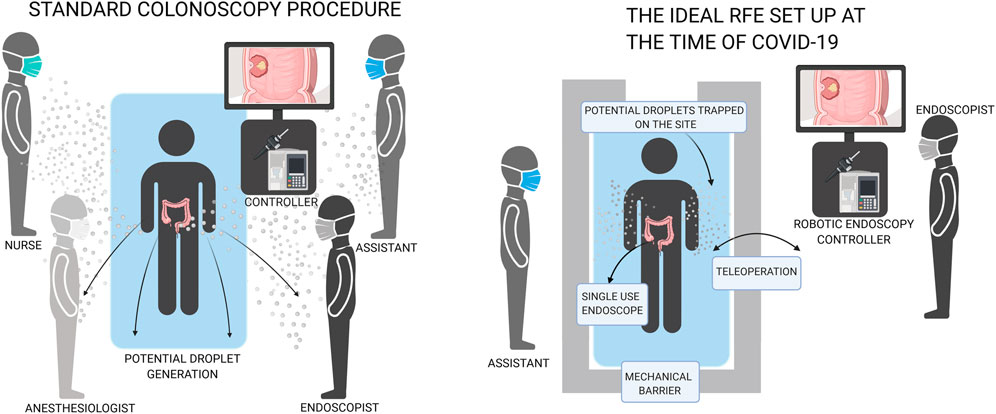
In this paper, we review the state of flexible gastrointestinal endoscopy during COVID-19 and the significant changes that it has undergone over the last few months. One of the most challenging aspects has been related to potential generation of aerosols during endoscopy procedures and how this presents an increased risk to healthcare workers. This resulted in a lengthy pause in most diagnostic, non-urgent care procedures during the height of the COVID-19 pandemic and has major long-term implications such as a large increase in excess deaths. For this reason, we have decided to probe how robotics can help guide the field to pre-pandemic capacity and deal with the back log that has resulted from the pause. Robotic platforms have the capability of creating separation (physical distancing) between patients and healthcare workers as well as minimizing the number of people in the room during the process. This would vastly improve the safety of the procedures. We also set the scene for the urgent need of a study to quantify aerosol generation during endoscopy procedures. The development and adoption of a robotic flexible endoscopy platform that is pandemic safe could revolutionize the field.
